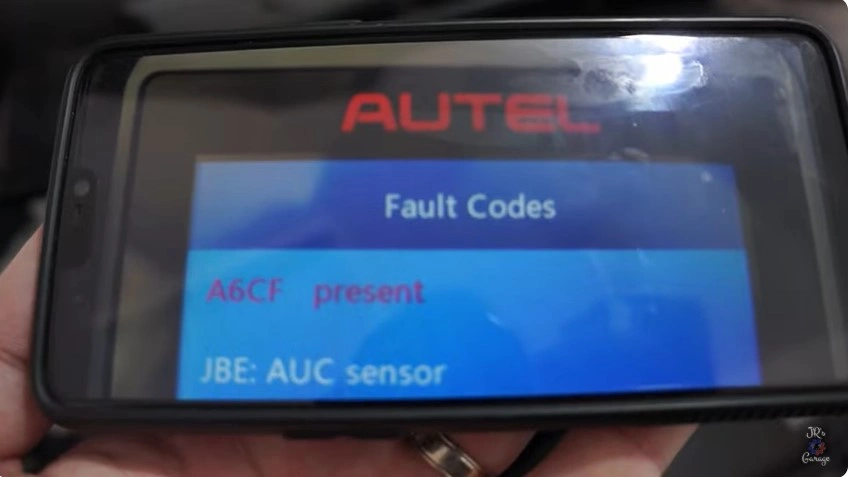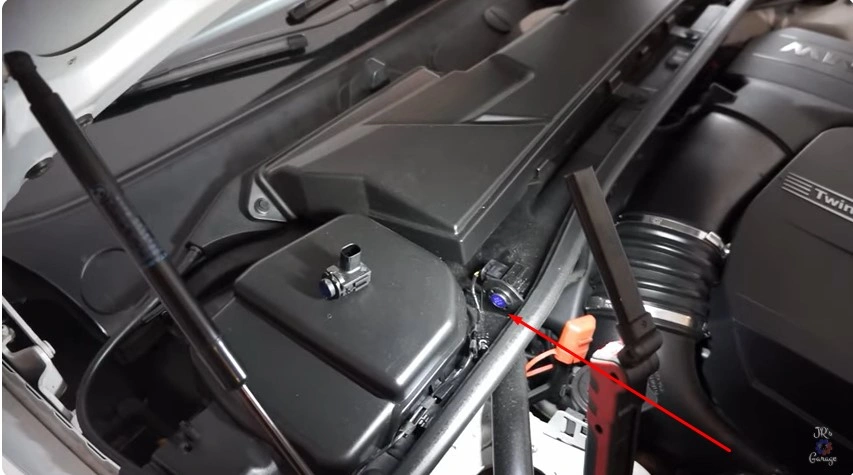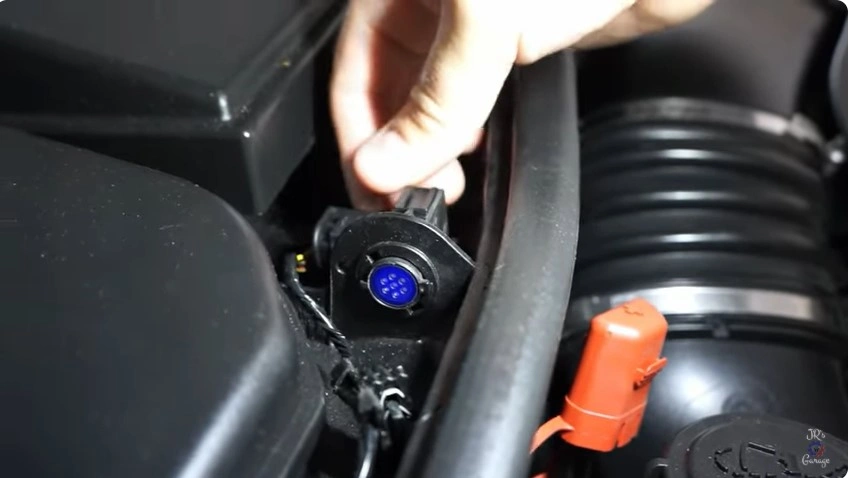If you’re driving a BMW and have noticed issues with the air quality inside your vehicle or a malfunctioning climate control system, there’s a chance that your AUC (Automatic Air Recirculation Control) sensor may be faulty. The AUC sensor plays a critical role in maintaining a comfortable and pollutant-free cabin environment, and when it malfunctions, it can lead to a number of unpleasant symptoms. In this article, we’ll explore common BMW AUC sensor symptoms, how to diagnose them, and what you can do to fix the issue.

What is the BMW AUC Sensor and How Does It Work?
Overview of the AUC Sensor Functionality
The AUC (Automatic Air Recirculation Control) sensor is an essential component of your BMW’s climate control system. Its primary function is to detect pollutants or undesirable particles in the outside air. When the sensor detects high levels of pollutants, it automatically activates the air recirculation mode, preventing the polluted air from entering the cabin.
In simple terms, the AUC sensor ensures that you breathe fresh, clean air inside the car by filtering out contaminants when necessary. This feature is especially valuable when driving in areas with heavy traffic, industrial zones, or during high pollution levels.
Common BMW AUC Sensor Symptoms
Unpleasant Smells in the Cabin
One of the most common symptoms of a faulty AUC sensor is the presence of unpleasant smells in the cabin. When the AUC sensor is malfunctioning, it may fail to detect pollutants in the outside air. As a result, polluted air, such as exhaust fumes or dust, can enter the cabin even when the air recirculation mode is active. This can lead to a noticeable and often unpleasant smell inside the vehicle.
Malfunctioning Air Recirculation System
Another sign of a faulty AUC sensor is the malfunctioning of the air recirculation system. The air recirculation feature should automatically activate when pollutants are detected and deactivate when clean air is available. If the AUC sensor is not working properly, the system may not activate when needed or may fail to deactivate when it should. This could lead to a less effective climate control system and an uncomfortable driving experience.
Possible Error Codes
Many BMW models are equipped with a diagnostic system that stores error codes when components malfunction. A faulty AUC sensor may trigger error codes such as A6CF, indicating a problem with the sensor. If you notice any error codes on your vehicle’s dashboard or if the check engine light comes on, it may be time to have the AUC sensor checked by a professional.
AC System Performance Issues
A faulty AUC sensor can also affect the performance of your BMW’s air conditioning system. The sensor is closely linked to the overall climate control system, and if it’s malfunctioning, it may cause the AC system to work less efficiently or even shut off prematurely. This could lead to uneven cabin temperatures, less effective cooling, and an uncomfortable driving experience.
Why a Faulty AUC Sensor Can Disrupt Your BMW’s Climate Control System
The AUC sensor plays a critical role in maintaining both air quality and comfort inside your BMW. When the sensor is not functioning properly, it can disrupt the entire climate control system, leading to issues like poor air circulation, temperature imbalances, and the entry of unwanted pollutants into the cabin. This not only affects the air quality but also reduces the overall effectiveness of your car’s climate control, forcing your AC system to work harder to maintain the desired temperature.
By ensuring that the AUC sensor is functioning properly, you can maintain the efficiency of your car’s climate control system, avoid unnecessary strain on the AC system, and keep the cabin air clean and fresh.
Diagnosing a Faulty AUC Sensor in Your BMW
Signs That Indicate a Faulty AUC Sensor
To diagnose a faulty AUC sensor, you should first pay attention to the symptoms mentioned earlier, such as:
-
Persistent bad smells (pollution, exhaust fumes) inside the cabin.
-
Malfunctioning recirculation mode, such as the system not activating when it should.
-
Error codes like A6CF stored in the vehicle’s diagnostic system.
-
AC system inefficiency or premature shutdowns.
If you notice any of these symptoms, it’s best to have your vehicle checked by a qualified BMW technician who can accurately diagnose the issue.

Using Diagnostic Tools to Confirm the Issue
If your BMW is displaying error codes related to the AUC sensor or you suspect that the sensor is faulty, a mechanic will use diagnostic tools to confirm the issue. These tools allow the technician to retrieve error codes from the vehicle’s onboard computer system and assess whether the AUC sensor is functioning properly.
Common Repair Options for AUC Sensor Issues
When it comes to repairing a faulty AUC sensor, the most common solutions are recalibration or replacement. If the sensor is malfunctioning but not physically damaged, it may simply need recalibration. However, in some cases, the sensor may need to be replaced entirely. A professional mechanic will be able to guide you on the best course of action based on the severity of the issue.
How to Fix BMW AUC Sensor Problems
Professional Repairs vs. DIY
While it may be tempting to attempt a DIY fix for a faulty AUC sensor, it’s important to remember that the AUC sensor is an integral part of your vehicle’s climate control system. Improper repairs or the use of non-genuine parts can lead to further issues. It’s often best to rely on a professional mechanic who is familiar with BMW systems and has the necessary diagnostic tools and expertise.
What to Expect During the Repair Process
If your AUC sensor needs to be repaired or replaced, the process typically involves:
-
Sensor inspection: The technician will inspect the sensor and determine if it needs to be recalibrated or replaced.
-
Diagnostic check: The vehicle’s diagnostic system will be used to clear any error codes.
-
Sensor replacement: If necessary, the old sensor will be removed and replaced with a new, genuine BMW AUC sensor.
-
System test: After the repair, the technician will test the air recirculation system and climate control to ensure the issue is resolved.
Preventive Maintenance Tips for Avoiding Future AUC Sensor Failures
To avoid future issues with your BMW’s AUC sensor, consider these preventive maintenance tips:
-
Regularly clean your cabin air filter to maintain good air quality and prevent dust or debris from interfering with the AUC sensor.
-
Periodically check your climate control system to ensure everything is functioning correctly.
-
If you notice any symptoms of a malfunctioning AUC sensor, address the issue promptly to avoid more extensive repairs.

FAQS on BMW AUC Sensor Symptoms
How Much Does It Cost to Replace a Faulty AUC Sensor?
The cost of replacing a faulty AUC sensor can vary depending on the model of your BMW and the complexity of the repair. On average, you can expect to pay between $200 and $500 for parts and labor. It’s always a good idea to get a quote from your local BMW dealership or trusted service center.
Can a Faulty AUC Sensor Cause Long-Term Damage to the Car?
If left unchecked, a faulty AUC sensor can affect the overall efficiency of your climate control system, putting unnecessary strain on the air conditioning system. Over time, this could lead to more severe issues with your BMW’s air conditioning system, potentially resulting in expensive repairs.
Is It Safe to Drive With a Malfunctioning AUC Sensor?
While driving with a malfunctioning AUC sensor may not pose an immediate safety risk, it can affect your comfort and the efficiency of your climate control system. If you notice symptoms like unpleasant smells or AC issues, it’s recommended to have your BMW inspected and repaired as soon as possible to avoid further complications.
Final thoughts: BMW AUC Sensor Symptoms
A malfunctioning AUC sensor can cause a variety of issues with your BMW’s climate control system, from unpleasant smells in the cabin to AC inefficiency. By recognizing the symptoms early and addressing the issue promptly, you can ensure that your BMW continues to provide a comfortable and pollutant-free driving experience.
If you’re experiencing any of the symptoms associated with a faulty AUC sensor, don’t hesitate to schedule a service appointment with your local BMW mechanic. Timely repairs and regular maintenance will help keep your car running smoothly and your cabin air clean for years to come.
